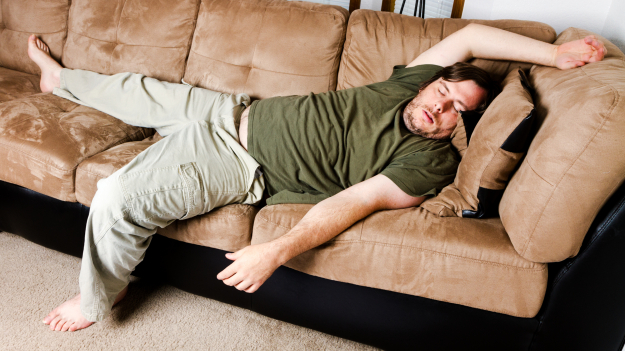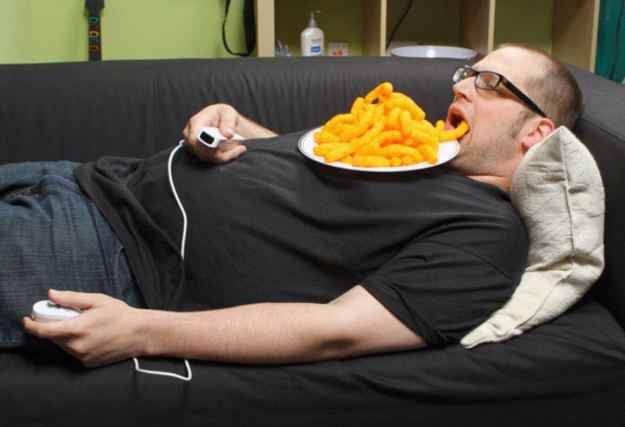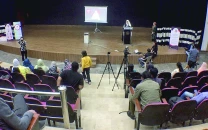Human brains are naturally attracted to laziness: study
Researches suggested that our brains may simply be wired to prefer lying on the couch

PHOTO: FRAMAPORTAL.NET
Carb-lovers, take heed: Study shows French fries are actually healthier than salads!
The findings, led by researchers from the University of British Columbia (UBC) in Canada, suggest that our brains may simply be wired to prefer lying on the couch and that human brains work harder to pick physical activity over relaxation.
"We knew from previous studies that people are faster at avoiding sedentary behaviours and moving towards active behaviours," said Matthieu Boisgontier, a postdoctoral researcher at UBC.
 PHOTO: IT'S GOA
PHOTO: IT'S GOAHe added, "The exciting novelty of our study is that it shows this faster avoidance of physical inactivity comes at a cost which is an increased involvement of brain resources. These results suggest that our brain is innately attracted to sedentary behaviours."
For the study, which has been published in the journal called Neuropsychologia, the team recruited young adults and made them sit in front of a computer. They then gave them control of an on-screen avatar and later flashed small images - one a time - that depicted either physical activity or physical inactivity.
Subjects had to move the avatar as quickly as possible towards the pictures of physical activity and away from the pictures of physical inactivity and then vice versa. Meanwhile, electrodes recorded what was happening in their brains.
 PHOTO: LAZY WORLDWIDE INTERWEB
PHOTO: LAZY WORLDWIDE INTERWEBParticipants were generally faster at moving toward active pictures and away from lazy pictures but brain-activity readouts called electroencephalograms, showed that doing the latter required their brains to work harder.
Boisgontier noted that the failure of public policies to counteract the pandemic of physical inactivity may be due to brain processes that have been developed and reinforced across evolution. However, the question is whether people's brains can be retrained or not.
Smartphones have more germs than toilet seats: Study
"Anything that happens automatically is difficult to inhibit, even if you want to, because you don't know that it is happening. But knowing that it is happening is an important first step," Boisgontier concluded.
Have something to add to the story? Share in the comments below.



















COMMENTS
Comments are moderated and generally will be posted if they are on-topic and not abusive.
For more information, please see our Comments FAQ